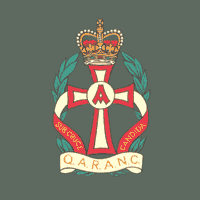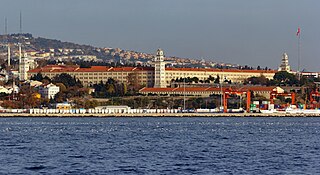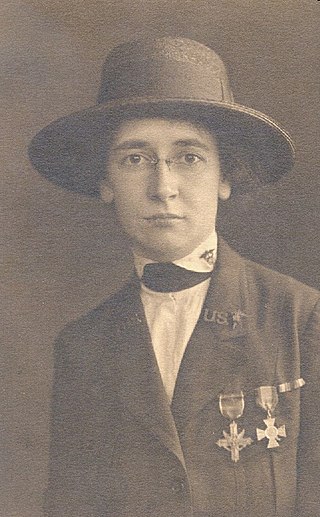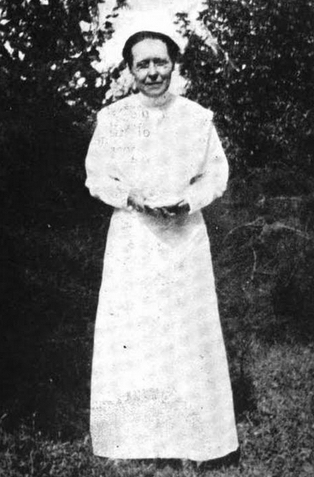
Grace Mary Ellison (died 3 October 1935) was a British journalist. She wrote several books about Turkey. Though not herself a trained nurse, she was founder of the French Flag Nursing Corps during World War I.

Grace Mary Ellison (died 3 October 1935) was a British journalist. She wrote several books about Turkey. Though not herself a trained nurse, she was founder of the French Flag Nursing Corps during World War I.
Grace Mary Ellison was from Scotland, [1] the daughter of Captain John Ellison. She credited her father's stories of sailing to India as inspiring her travelling career. She was educated in England at Rochester Girls' Grammar School, and in France, and at the University of Halle. [2] [3]
Ellison was a journalist especially interested in Turkey.[ citation needed ] She befriended Turkish sisters Hadjidjé Zennour and Nouryé Neyr-el-Nissa, in 1905. Using their pseudonyms, she edited and co-wrote English-language books with them, Zeyneb Hanoum's A Turkish Woman’s European Impressions (1913, a memoir) and Melek Hanoum's Abdul Hamid's Daughter (1913, a novel). [4] [5] Whilst travelling in Turkey in 1908-1909 and 1912–1913, Ellison wrote articles for The Daily Telegraph . She advocated for women students to gain access to college classes in Constantinople. She was awarded the Order of Charity (Şefkat Nişanı) for her efforts on behalf of women in Turkey. [6] She reported on the Second Hague Conference (1907) and was continental reporter for the Bystander. [3]
In 1914, Grace Ellison worked with nurse Ethel Gordon Fenwick to create the French Flag Nursing Corps, [7] coordinating the work of experienced nurses from the British Empire (including Canada, Australia, and New Zealand) with the French Medical Corps during World War I. [8] The corps eventually became a program of the French Red Cross. Ellison fell seriously ill in 1917, and spent months recovering at a hospital in Bordeaux. [6] The French government decorated Ellison for her wartime contributions. [3]
After the war, she continued lectures in the United States on behalf of the French Ministry of War, matching French nurses to American nursing schools and expanding their opportunities for training at home. [9] [10] "I am convinced that the most important factor in social reconstruction today is the trained nurse," she explained. "No child welfare work can be done without trained nurses, and the whole future of France depends on what is done for her children." [11] In 1922, she returned to Turkey to cover the Turkish War of Independence; in 1927, she was back in Ankara, reporting on the rapidly changing city. [12]
She also worked on three biographical projects: Prince Nicholas of Greece's memoirs (1923), a biography of Mustafa Kemal Atatürk (1930), and The Authorised Life Story of Princess Marina (1934). [3]
Grace Mary Ellison died in October 1935, in Berlin. [2]

Queen Alexandra's Royal Army Nursing Corps is the nursing branch of the British Army Medical Services.

The Imperial Harem of the Ottoman Empire was the Ottoman sultan's harem – composed of the wives, servants, female relatives and the sultan's concubines – occupying a secluded portion (seraglio) of the Ottoman imperial household. This institution played an important social function within the Ottoman court, and wielded considerable political authority in Ottoman affairs, especially during the long period known as the Sultanate of Women.

Dame Emma Maud McCarthy, was a nursing sister and British Army matron-in-chief.

Dame Alicia Frances Jane Lloyd Still, was a British nurse, teacher, hospital matron and leader of her profession. She was one of the leaders in the campaign for state registration of nurses. Following the Nurses Registration Act 1919, she was a member of the General Nursing Council (1920-1937). As chairwoman of the General Nursing Council's first Education and Examinations Committee she helped establish the first national examination standards for the registration of nurses.

Selimiye Barracks, also known as Scutari Barracks, is a Turkish Army barracks located in Selimiye in the Üsküdar district on the Asian side of Istanbul, Turkey. It was originally built in 1800 by Sultan Selim III for the soldiers of the newly established Nizam-ı Cedid within the framework of the Ottoman military reform efforts. Today, it serves as the headquarters of the First Army of Turkish Land Forces.

Julia Catherine Stimson was an American nurse, credited as one of several persons who brought nursing to the status of a profession.
The word "nurse" originally came from the Latin word "nutrire", meaning to suckle, referring to a wet-nurse; only in the late 16th century did it attain its modern meaning of a person who cares for the infirm.

Florence Aby Blanchfield was a United States Army Colonel and superintendent of the Army Nursing Corps, from 1943 to 1947. She was awarded the Distinguished Service Medal in 1945, and the Florence Nightingale Medal by the International Red Cross in 1951. In 1947 Blanchfield became the first woman to receive a military commission in the regular army.
The history of nursing in the United Kingdom relates to the development of the profession since the 1850s. The history of nursing itself dates back to ancient history, when the sick were cared for in temples and places of worship. In the early Christian era, nursing in the United Kingdom was undertaken by certain women in the Christian Church, their services being extended to patients in their homes. These women had no real training by today's standards, but experience taught them valuable skills, especially in the use of herbs and folk drugs, and some gained fame as the physicians of their era. Remnants of the religious nature of nurses remains in Britain today, especially with the retention of the job title "Sister" for a senior female nurse.
Lily Lind was a nurse from New Zealand who served in France in World War I.

Helen Grace McClelland , a United States Army nurse, was awarded the United States Distinguished Service Cross and the British Royal Red Cross Medal for heroic actions during World War I while serving at a British Base Hospital in France. McClelland was one of only four women to receive the Distinguished Service Cross award during World War I. After returning to the United States, McClelland spent twenty-three years as Director of Pennsylvania Hospital's School of Nursing. In her role, McClelland advocated for the professionalization and modernization of nursing. McClelland was inducted into the Ohio Women's Hall of Fame in 1978.

Major Margaret Clothilde MacDonald, was a Canadian military nurse. She is well known for being one of the first women to hold a position in the completely male-dominated military of her time. She is also known for her breakthrough role as a military nurse during the First World War. During this time, she was given the title of Matron-in-Chief of the Canadian Army Medical Corps Nursing Service. MacDonald was the first woman promoted to the rank of major in the British Empire and was awarded the Royal Red Cross (1916) and the Florence Nightingale Medal (1918).
Margaret (Daisy) Hitchcock was a nurse from New Zealand who served in France in World War I.

Anna Hamilton was a French medical doctor, superintendent of the Protestant Hospital in Bordeaux for 34 years, and a proponent of professionalization in nursing.

Mary Elizabeth Gladwin was an English-born American Red Cross nurse active in three wars. She was one of the first six American nurses to receive the Florence Nightingale Medal when it was awarded by the International Committee of the Red Cross in 1920.

Lucy Minnigerode was an American nurse in World War I, and founder of the United States Public Health Service Nursing Corps. She was the eighth American recipient of the Florence Nightingale Medal, awarded by the International Committee of the Red Cross in 1925.

Dame Ethel Hope Becher, was a British nurse who served in the War Office as matron-in-chief of the Queen Alexandra's Royal Army Nursing Corps from 1910 to 1919.

Florence Church Bullard (1880–1967) was an American nurse and recipient of the French Croix de Guerre with a bronze star. Trained at St. Mary's Hospital Nursing School in Rochester, Minnesota, she served with the American Red Cross in the American Volunteer Motor Ambulance Corps.